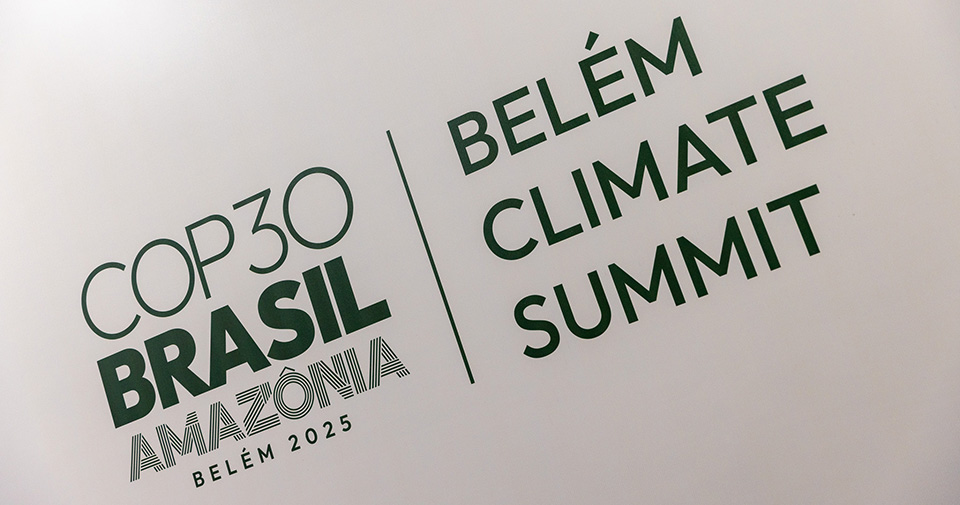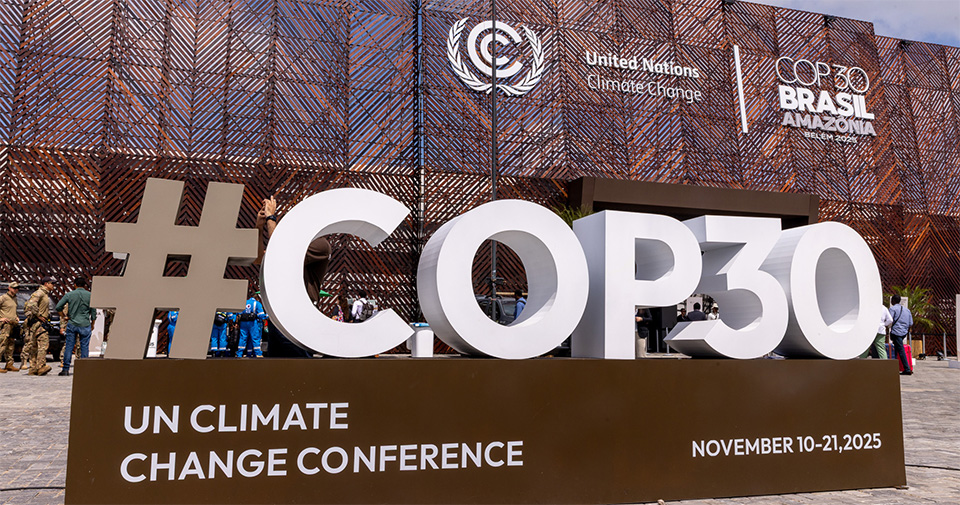The 30th Conference of the Parties on Climate Change (COP30), held in Belém, Brazil, from 10 to 21 November 2025, has just concluded, bringing together nearly 200 countries to discuss global climate policies. The conference reaffirmed the importance of multilateral cooperation and continuity with the objectives of the Paris Agreement, without introducing binding commitments on the phase-out of fossil fuels. The final agreement, known as the Mutirão Decision, was greeted with applause, but observers still considered it insufficiently incisive due to gaps in energy and mitigation policies.

Climate finance and adaptation: a concrete commitment
One of the most significant outcomes of COP30 was the commitment to triple funding for climate adaptation — to USD 1.3 trillion per year — by 2035, with a focus on the most vulnerable countries. To support a just transition to a green economy, the Just Transition Mechanism was established to help reduce the social impact on workers in fossil fuel-related sectors. In addition, 59 global indicators were defined to monitor progress in climate adaptation, providing greater transparency on each country’s performance.
Health and society: plans for resilience
In the areas of health and society, COP30 approved the Belém Health Action Plan (BHAP), aiming to strengthen health systems and make them more resilient to the effects of climate change.
Two other major plans presented during the conference include:
-
Beat the Heat, which proposes urban solutions such as reflective surfaces and green spaces to mitigate the impact of heatwaves;
-
Belém Call for Action, aimed at promoting sustainable and affordable housing by integrating climate considerations into building regulations.
Fossil fuels and the energy transition: voluntary instruments
A particularly noteworthy point concerns the final text of COP30, which does not include a binding roadmap for phasing out fossil fuels. However, two voluntary roadmaps were announced: one for a just transition away from fossil fuels and another one to halt and reverse deforestation, the latter due to be presented at the 2026 summit.
The third roadmap, also dedicated to deforestation, was shelved and replaced by the Tropical Forest Forever Fund, which nevertheless did not reach its fundraising target. This decision appears in contrast with the symbolic value of COP30 held on the doorstep of the Amazon rainforest.
Two key instruments were also launched to support the energy transition:
-
Global Implementation Accelerator, to strengthen the implementation of Nationally Determined Contributions (NDCs) and Adaptation Plans.
-
Belém Mission to 1.5, a platform designed to encourage cooperation and investment aligned with scientific climate goals.
Cooperation and multilateral governance
Finally, the Coalition for High Ambition Multilevel Partnerships (CHAMP) was created, co-chaired by Brazil and Germany, to strengthen multilevel governance.
The Baku–Belém pathway reaffirms the goal of increasing global climate finance to USD 1.3 trillion per year by 2035, improving the predictability and accessibility of financial resources.
Mitigation: still a long way to go
National emission reduction plans are still not fully aligned with scientific recommendations. However, a growing coalition of countries — European, Latin American, African, and small island states — is calling for:
-
acceleration of the energy transition
-
greater integration of science into policy decisions
-
more ambitious regional and multilateral pathways
Once again, COP30 closes by highlighting the difficulty of reconciling scientific ambitions with political reality, while maintaining a framework of multilateral cooperation consistent with previous agreements.
Image source: italycop30.org
Read also: COP30, the UN Global Compact Network Italy in Belém to promote the Protection of Natural Capital

